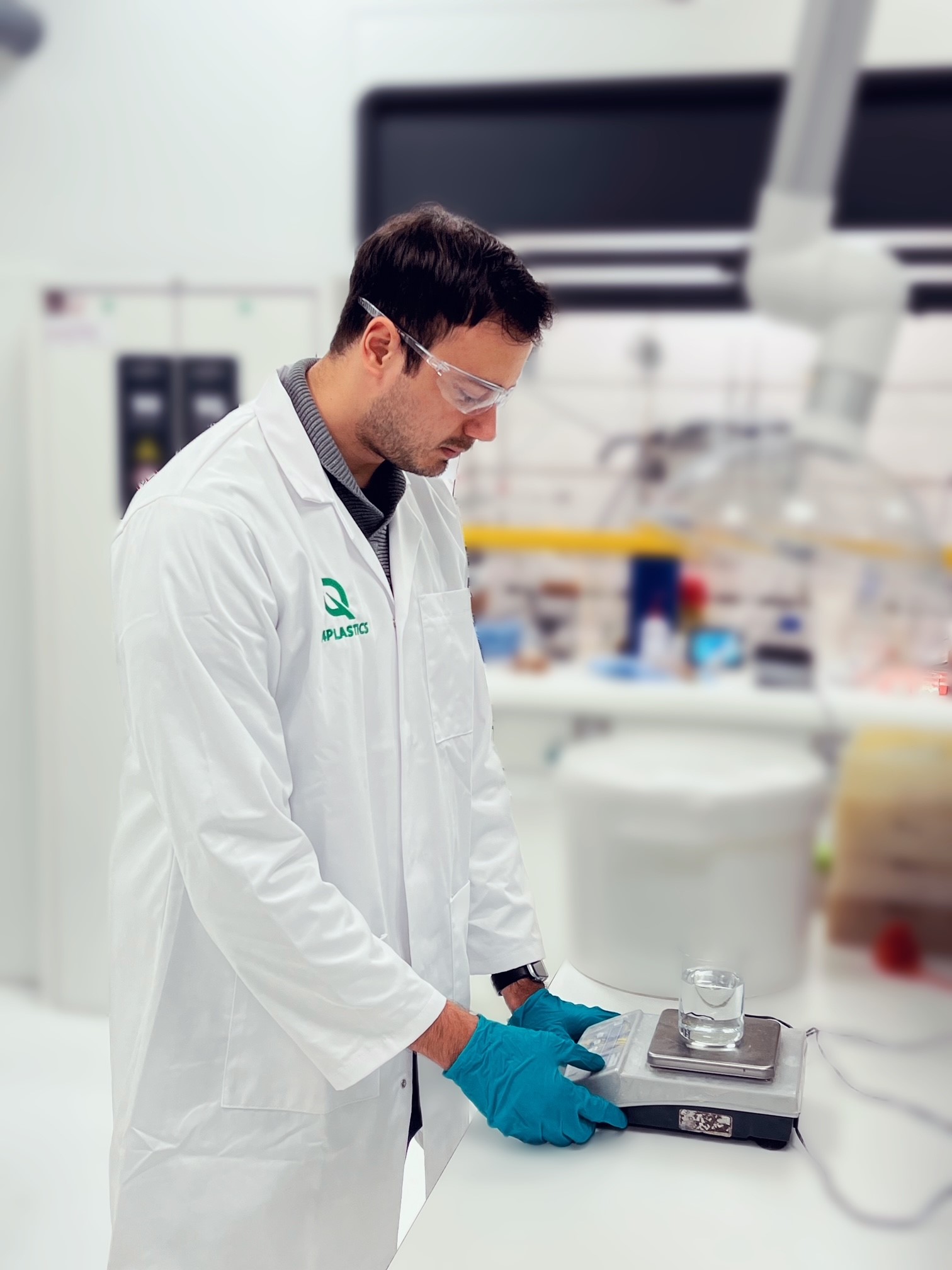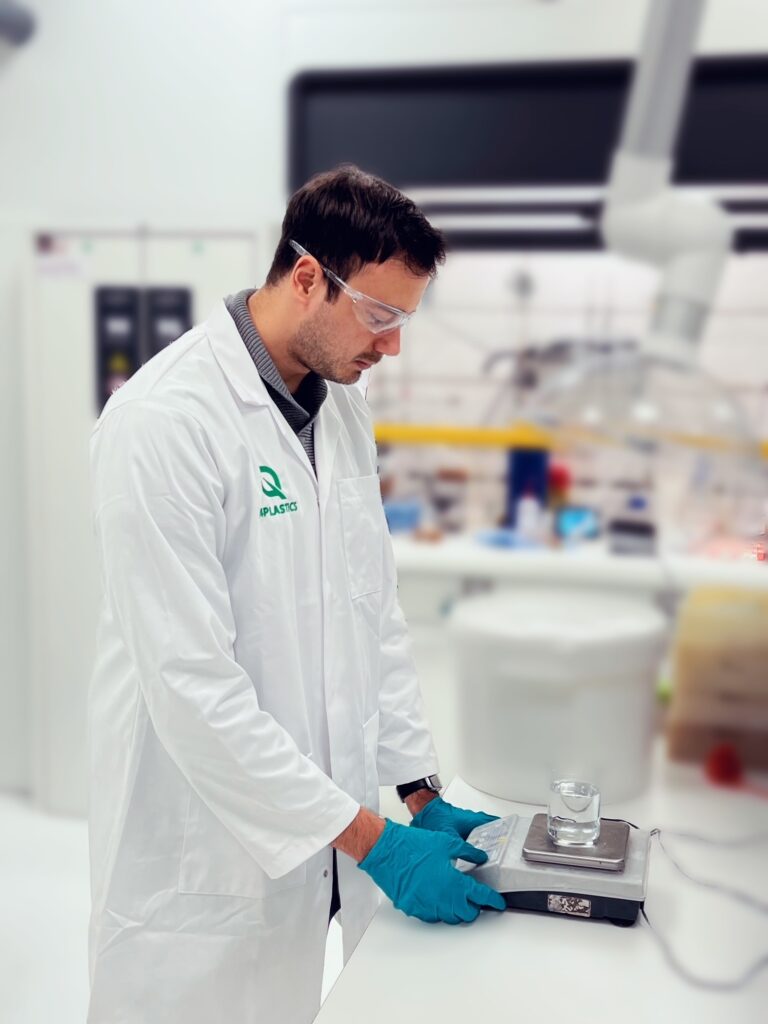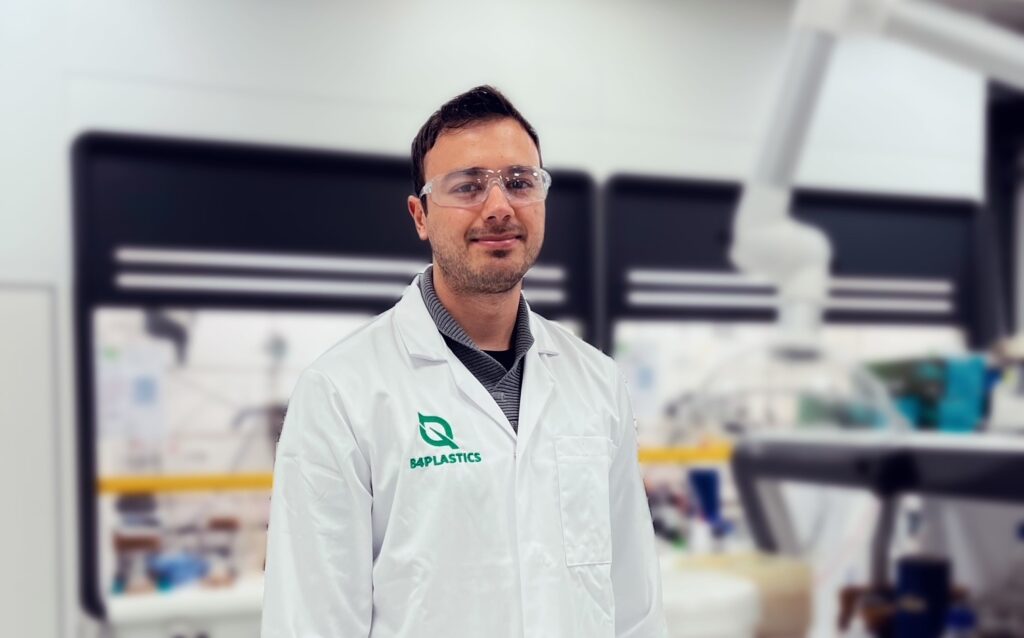B4Plastics Team, New
A day in the life of Luciano, our B4Plastics R&D Scientist !
June 5, 2023
As part of our series about the daily work of B4Plastics employees, today we're happy to introduce Luciano Monsegue, R&D Scientist at B4Plastics.

Background of Luciano
Luciano is 29 years old and holds a masters in Biobased Materials, R&D scientist.
Q. How did you get into a career as an R&D Scientist in the New Plastics Economy?
I’ve always had an interest in science, particularly chemistry and biology, which helped shape my decision in choosing a career in scientific research. My journey began with an initial interest in biological structures and synthetic chemistry, which led to a curiosity in how to combine knowledge in these subjects to obtain materials with a desired function that can be made sustainably from renewable biological raw materials. This curiosity was further developed during my master’s study in Biobased Materials, which solidified my desire to carry out research that advances the goals of sustainability. A large part of sustainability research involves the production of (bio)plastics, which was ultimately the career path I’ve chosen.
Q. Describe your typical working day at B4Plastics.
My workday begins at 7:30am and I usually start my day by going through work e-mails with some coffee. I then align with my students on their obtained results and workplan. Since I handle multiple projects/tasks, the prioritization of work carried out for them is done early on and the rest of the day involves executing the practical R&D work necessary to complete project goals and reach important deadlines. An example of such work would be setting up and monitoring a reaction carried out either in the lab (lab-scale research) or elsewhere (upscaling research). During the reaction, I spend time writing reports, analyzing data and attending meetings scheduled for that day. Before the workday finishes, I begin cleaning up and shutting down reaction(s).
Q. What are the skills you need to excel as an R&D Scientist in a scale-up company?
Besides the more expected skills, such as background knowledge in polymers and practical experience in synthetic chemistry, a major part in developing (bio)plastics is the innovative character and economically-minded thinking necessitated by shifting the plastics economy from fossil-based to biobased production. A fossil-based commercial plastic may for example have the ability to be produced in a biobased fashion, although the desire to further develop a particular biobased production pathway will depend as well on economic feasibility. Part of R&D in shifting the plastics economy to more sustainable approaches involves taking into account innovation, economic feasibility and staying up to date with the developing biobased processes, which increases availability of biobased monomers more and more in the market.

Q. What challenges do you face in this role?
Q. What keeps you motivated to go to work every day?
Every small contribution to sustainable living helps in maintaining economic output and everyone’s personal comfort in the long term. I’m naturally interested in scientific research coming out of various fields, and in terms of a fulfilling career, applying such research towards sustainability feels like I’m doing what I enjoy doing with a greater benefit for this world.
Q. What advice would you give someone considering a career in the New Plastics Economy?

